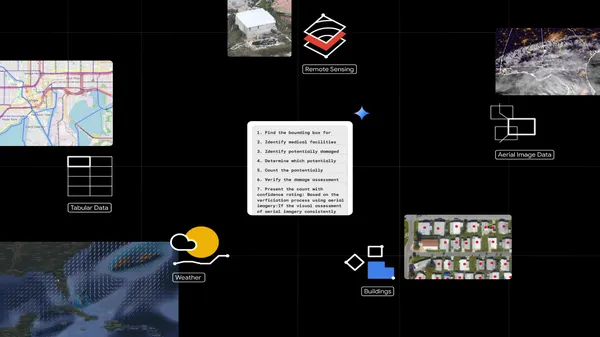Preorder Traversal | GeeksforGeeks Beginner's DSA Sheet | Tree Data Structure | With Source Code
hola coders! In this video, we will break down Preorder Traversal of a Binary Tree step by step and solve a real GeeksforGeeks problem to reinforce our understanding. Preorder Traversal follows the NLR (Node → Left → Right) approach and is one of the fundamental tree traversal techniques used in data structures and algorithms (DSA). Binary Trees are one of the most crucial topics in Data Structures and Algorithms (DSA), frequently asked in coding interviews at FAANG and top tech companies. Understanding Preorder Traversal is essential because it lays the foundation for solving more complex tree-based problems. Problem Link: https://www.geeksforgeeks.org/problems/preorder-traversal/1 Source Code: https://github.com/debeshp6/Gfg-Tutorials/blob/main/PreorderTraversal.java Code //Back-end complete function Template for Java class Solution { // Function to return a list containing the preorder traversal of the tree. static ArrayList preorder(Node root) { // write code here ArrayList arr = new ArrayList(); helper(root, arr); // recursion return arr; } // preorder traversal: root - left - right static void helper(Node root, ArrayList arr) { // we are creating a helper function here if(root == null) return; // base case arr.add(root.data); helper(root.left, arr); // recursion helper(root.right, arr); // helper function is readyyyy !!!! } } Time Complexity: O(n) who should watch this? Beginners & Intermediate Programmers – If you are new to trees, this video simplifies the concepts for you Competitive Programmers – Improve your problem-solving skills with practical applications Job Seekers & Interview Prep Enthusiasts – Preorder Traversal is commonly asked in coding interviews DSA Enthusiasts – Strengthen your understanding of fundamental tree traversal techniques Got any questions? Drop them in the comments below! I’ll be happy to help. happy coding!

hola coders!
In this video, we will break down Preorder Traversal of a Binary Tree step by step and solve a real GeeksforGeeks problem to reinforce our understanding. Preorder Traversal follows the NLR (Node → Left → Right) approach and is one of the fundamental tree traversal techniques used in data structures and algorithms (DSA).
Binary Trees are one of the most crucial topics in Data Structures and Algorithms (DSA), frequently asked in coding interviews at FAANG and top tech companies. Understanding Preorder Traversal is essential because it lays the foundation for solving more complex tree-based problems.
Problem Link: https://www.geeksforgeeks.org/problems/preorder-traversal/1
Source Code: https://github.com/debeshp6/Gfg-Tutorials/blob/main/PreorderTraversal.java
Code
//Back-end complete function Template for Java
class Solution {
// Function to return a list containing the preorder traversal of the tree.
static ArrayList preorder(Node root) {
// write code here
ArrayList arr = new ArrayList<>();
helper(root, arr); // recursion
return arr;
}
// preorder traversal: root - left - right
static void helper(Node root, ArrayList arr) { // we are creating a helper function here
if(root == null) return; // base case
arr.add(root.data);
helper(root.left, arr); // recursion
helper(root.right, arr);
// helper function is readyyyy !!!!
}
}
Time Complexity: O(n)
who should watch this?
- Beginners & Intermediate Programmers – If you are new to trees, this video simplifies the concepts for you
- Competitive Programmers – Improve your problem-solving skills with practical applications
- Job Seekers & Interview Prep Enthusiasts – Preorder Traversal is commonly asked in coding interviews
- DSA Enthusiasts – Strengthen your understanding of fundamental tree traversal techniques
Got any questions? Drop them in the comments below! I’ll be happy to help.
happy coding!






































































































































































![[The AI Show Episode 143]: ChatGPT Revenue Surge, New AGI Timelines, Amazon’s AI Agent, Claude for Education, Model Context Protocol & LLMs Pass the Turing Test](https://www.marketingaiinstitute.com/hubfs/ep%20143%20cover.png)

































































































































![From drop-out to software architect with Jason Lengstorf [Podcast #167]](https://cdn.hashnode.com/res/hashnode/image/upload/v1743796461357/f3d19cd7-e6f5-4d7c-8bfc-eb974bc8da68.png?#)









































































































.jpg?#)































_ArtemisDiana_Alamy.jpg?#)




 (1).webp?#)
























































































![Yes, the Gemini icon is now bigger and brighter on Android [U]](https://i0.wp.com/9to5google.com/wp-content/uploads/sites/4/2025/02/Gemini-on-Galaxy-S25.jpg?resize=1200%2C628&quality=82&strip=all&ssl=1)













![New iOS 19 Leak Allegedly Reveals Updated Icons, Floating Tab Bar, More [Video]](https://www.iclarified.com/images/news/96958/96958/96958-640.jpg)

































































































































